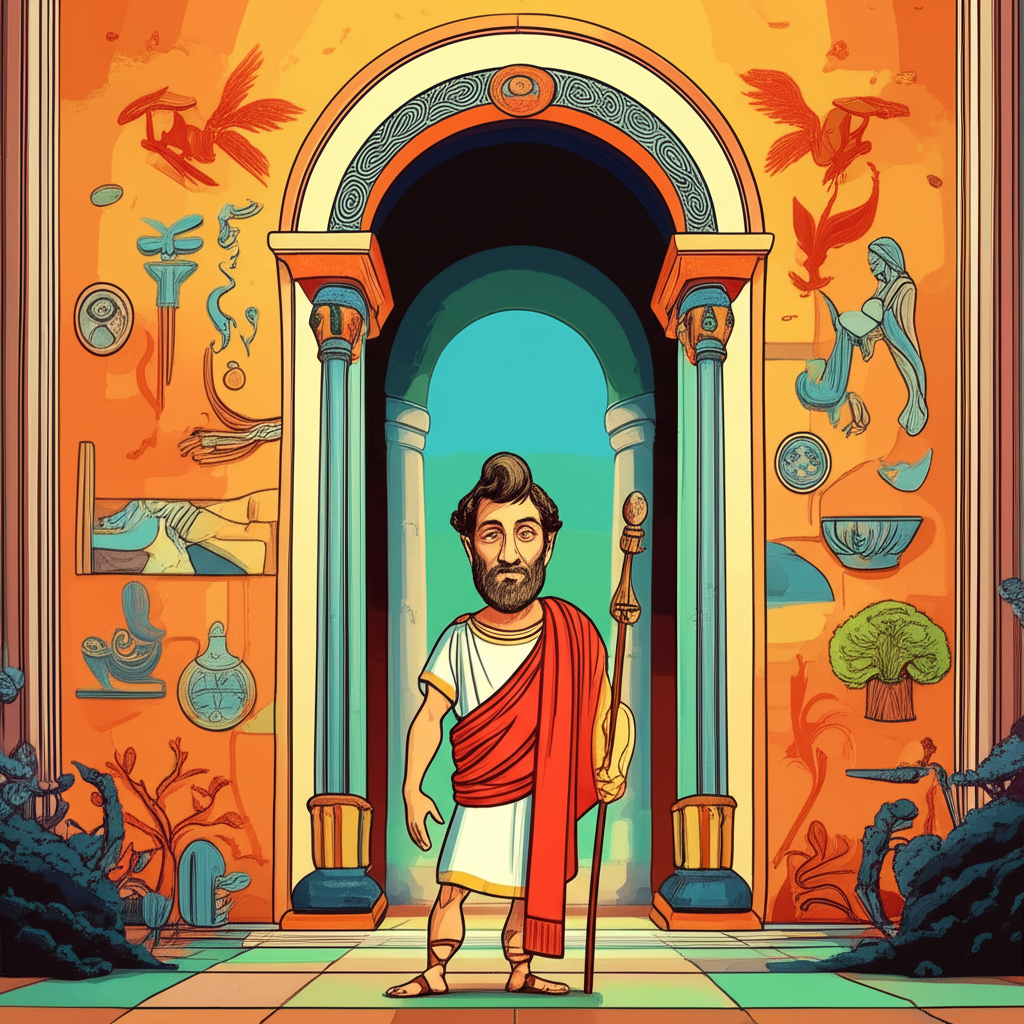
In the vast tapestry of ancient Greek mythology, woven with tales of gods, heroes, and epic struggles, stands the legendary figure of Achilles. His story, a cornerstone of the epic poems attributed to Homer, particularly the Iliad, is deeply embedded in the cultural consciousness of the Western world. The myth of Achilles and his fabled invincibility, achieved through a ritualistic immersion in the River Styx, offers a potent glimpse into the worldview of ancient Greeks and continues to resonate through modern interpretations. It is crucial to understand that this is a traditional story, a product of ancient imagination and cultural expression, not a factual account.
The narratives surrounding Achilles emerged from a society that grappled with profound questions about life, death, fate, and the nature of heroism. Ancient Greece, during the Bronze Age and Archaic periods when these stories likely coalesced, was a land of stark beauty and harsh realities. Life was often precarious, marked by warfare, natural disasters, and the ever-present mystery of the divine. The gods, as depicted in these myths, were not distant, benevolent entities, but rather powerful, capricious beings who intervened directly in human affairs, driven by their own passions and rivalries. In such a world, where the line between the mortal and the divine was often blurred, heroes like Achilles represented the pinnacle of human potential, flawed yet extraordinary figures who dared to challenge the limits of their mortality. The Greeks viewed the world as a place where fate was an inescapable force, and the gods held dominion over its unfolding. Their stories served as a means to explore these complex ideas, to understand their place in the cosmos, and to articulate their values and aspirations.
At the heart of this myth lies Achilles, often portrayed as the greatest warrior of the Achaean army during the Trojan War. He is the embodiment of martial prowess, speed, and unwavering courage. His defining characteristic, however, is his near-invincibility. This attribute is not inherent but is attributed to a specific, symbolic act. The River Styx, in Greek mythology, is not a placid waterway but a formidable, shadowy river that forms the boundary between the living world and the Underworld, presided over by the grim god Hades. It is a place of passage, a liminal space, and its waters are imbued with an otherworldly power. The symbolic attributes of the Styx are those of the ultimate barrier, the threshold to the unknown, and a source of potent, perhaps even dangerous, magic. It represents the boundary of life itself, and its waters, in this myth, are imbued with the power to repel death and destruction.
The narrative of Achilles’ mother, the sea nymph Thetis, seeking to make her son immortal is a compelling one. Upon his birth, fearing for his life in a world fraught with peril, Thetis took the infant Achilles to the banks of the River Styx. Holding him by his heel, she dipped him into the dark, churning waters. The legend states that the Styx flowed over his entire body, rendering him impervious to harm, save for the single point where his mother’s hand had clasped him – his heel. This tiny, un-dipped spot became his sole vulnerability, a tragic flaw woven into his otherwise impenetrable armor. As Achilles grew, this tale of his invincibility spread, making him a terrifying force on the battlefield. He was a whirlwind of destruction, a warrior whose very presence could sow dread among his enemies. Yet, the foreshadowing of his eventual downfall, linked to this single vulnerable point, hangs over his exploits, adding a layer of tragic inevitability to his legend. The Iliad recounts his prowess in battle, his rage, and his eventual confrontation with Hector, the greatest warrior of Troy, culminating in a duel that would seal his fate.
The symbolism embedded within the myth of Achilles and the River Styx is multifaceted. The act of immersion in the Styx can be interpreted as a quest for ultimate power, a desire to transcend the limitations of mortal existence. It speaks to the ancient Greek aspiration for glory and remembrance, a yearning to achieve a form of immortality through heroic deeds, even if physical immortality remained elusive. The heel, as the only vulnerable point, serves as a powerful metaphor for the inherent fragility that even the greatest among us possess. It suggests that absolute invincibility is an illusion, and that every strength carries a hidden weakness. This concept resonates with the Greek understanding of hubris – excessive pride – and the potential for downfall that accompanies it. The Styx itself, as the river of the Underworld, can also be seen as representing the ultimate confrontation with mortality, a boundary that even the most powerful hero must eventually cross.
In contemporary times, the myth of Achilles and his vulnerable heel has found enduring life in various forms of media. The character of Achilles remains a popular figure in literature, often reinterpreted in novels that explore his complexities, his rage, and his relationships. He has been depicted on the silver screen, most notably in films that dramatize the Trojan War, where his warrior prowess and tragic end are central to the narrative. In video games, the concept of a hero with a singular weakness can be a compelling gameplay mechanic, drawing inspiration from this ancient legend. Beyond entertainment, the myth is a subject of study in classical literature, history, and cultural studies, offering insights into ancient Greek values, beliefs, and their enduring fascination with heroism and the human condition.
It is vital to reiterate that the story of Achilles and his journey to the River Styx is a traditional narrative, a testament to the power of human imagination and storytelling. As Muslims, we recognize that the true Creator and Sustainer of all existence is Allah (God). This understanding guides our perspective, ensuring that we approach such cultural narratives with an appreciation for their historical and literary significance, rather than as a basis for belief. The enduring appeal of these ancient tales lies in their ability to explore timeless human themes – courage, mortality, the pursuit of glory, and the ever-present specter of fate. The myth of Achilles, in its imaginative portrayal of a near-invincible warrior and his singular vulnerability, continues to serve as a rich source for understanding cultural heritage, the evolution of storytelling, and the enduring human desire to explore the boundaries of our existence.




